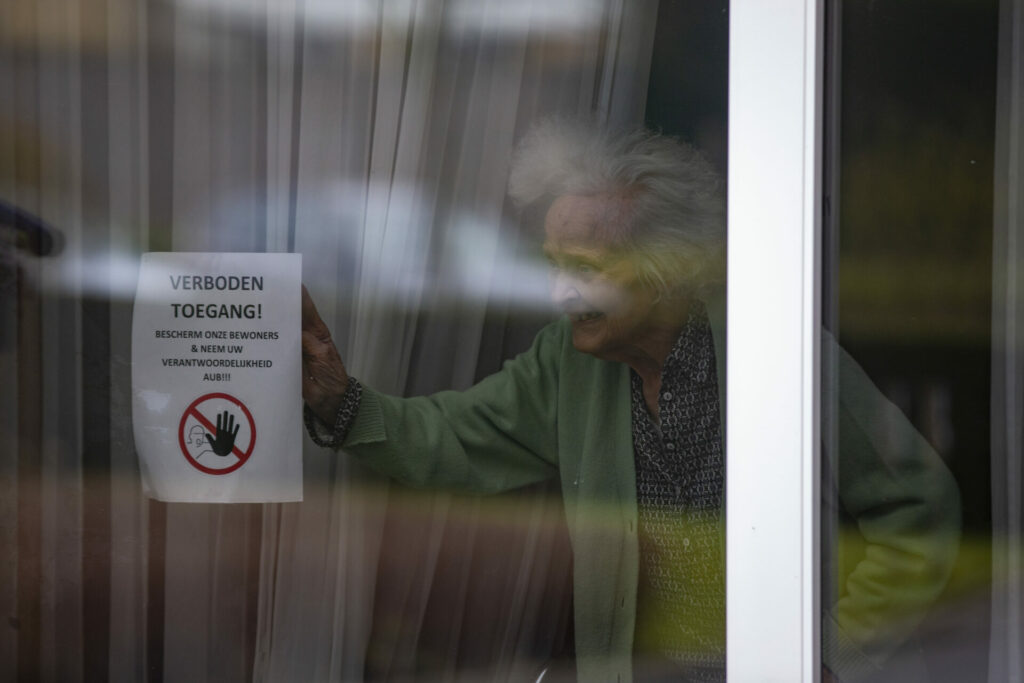Residential care homes working with smaller living groups and fixed care teams had remarkably fewer Covid-19 infections and deaths, among residents as well as staff members, research from KU Leuven and Radboud University in the Netherlands shows.
Researchers polled the organisational structure of 318 residential care centres and their service and care provision before and during the Covid-19 crisis and juxtaposed their findings with Covid-19 data from the Agency for Care and Health.
"The results are clear. We expected an effect, but the clarity of the figures surprised us," said associate professor Lander Vermeerbergen (KU Leuven/Radboud University) in a press release.
Four work organisational characteristics are associated with fewer Covid-19 infections, namely the size of the living group, the size of the establishment, the breadth of employees' task packages, and the way care teams are composed and assigned to living groups.
"In residential care homes with only living groups smaller than 17 residents, there was an average proportion of 17.5% infection; in residential care homes with large living groups of more than 32 residents, it was 27.5%," said researcher Eveline Teppers (HIVA-KU Leuven). "The number of residents who died because of Covid-19 was 2.5% and 5.1%, respectively."
Smaller groups, fixed tasks
But the range of tasks of employees and the size of the establishment of residential care centres is also crucial, said professor Geert Van Hootegem (KU Leuven). "The study shows that residential care centres with fixed multidisciplinary care teams per living group had fewer infections than residential care centres working with mono- or multidisciplinary care teams for multiple living groups."
At the same time, the study showed that an approach with smaller living groups and permanent multidisciplinary teams make for a more "homely atmosphere" in times of a pandemic. Even if the Covid-19 constraints weighed on this too: domestic habits such as preparing meals in the living room and doing laundry in the home were rare. Earlier research conducted by the researchers already showed increased workability of the care staff's job in such care settings.
Many residential care homes also anticipated this during the Covid crisis and made impressive organisational changes during the first waves of the pandemic. In the survey, 80% of managements said they worked with permanent teams per living group. 40% say they have made the living groups smaller. However, the majority say they have applied this only temporarily.
Related News
- One in three residents in Belgian care homes given antipsychotic drugs
- Philosophy and dance: Flemish care homes get creative to tackle staff shortages
- Resistance to antibiotics could become the number one cause of death by 2050
Moving to a more innovative organisation is crucial in the fight against future pandemics. At the same time, it is a far-reaching change process and a long-term job, stressed Vermeerbergen. "In addition to the will and motivation to do things differently, sufficient framework, resources, space and time are needed to make changes in the organisational structure (permanently) possible."
This was also underlined by Flemish Minister for Welfare, Public Health and Family Hilde Crevits, who commissioned the study in collaboration with various civil society organisations (employers' umbrella organisations, trade unions and elderly care organisations).
"Covid-19 has had a major impact on life and care in our residential care centres. We have long pursued small-scale initiatives and innovation in the work organisation of care and welfare facilities," she said. "The results of this study underline the importance of this, in terms of living as well as for the care and health of residents and staff. We will continue to work on this together with the sector."

